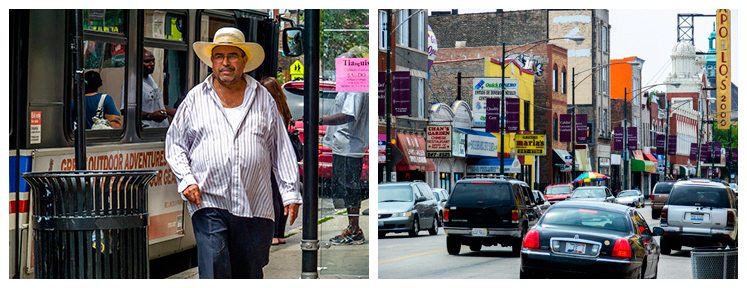
When it comes to issues of law and order, people who live in rural areas and small towns seem to have a different notion of what laws are for and what they can accomplish than do folks who live in big cities. In rural areas and small towns, residents usually have a strong sense of who belongs and who doesn't. In other words, who is an outsider and who isn't. Residents know each other by sight and pretty much know what kind of behavior to expect from each other. When a stranger arrives on the scene, they are viewed with suspicion and sometimes fear. How the stranger will behave is expected to be surprising and non-conforming. The outsider's judgment of what they see is often feared, for shame is a common method of social control among rural folk. And as a defense, reason to judge back is actively looked for. Rural and small town people like the way things are and don't see need for change. Laws, they think, should help ward off change and force outsiders to behave more like insiders. City folks have a completely different perspective. They move between culturally diverse neighborhoods regularly throughout the day. They expect people around them to be different both from themselves and between neighborhoods, and to act in sometimes surprising ways. City folks will adopt differing modes of dress to emphasize either their individuality or their willingness to conform to neighborhood or group standards. Rules and the need for laws are seen as relevant to the social situation and not immutable or arbitrary, but practical in accordance with group aspirations. Rules and laws are seen as invented and enacted by people using collective knowledge to achieve collective goals, not adhered to because of some historic precedent or authoritative declaration. In cities, people are the authority, people provide the need for and reason for rules and laws. And when attempts are made to usurp that authority, the people are likely to revolt like we have often seen in U.S. city riots and are now seeing frequently in European and Middle Eastern countries like Greece, Russia, Spain, and Egypt. The issue is inclusion in the processes of creating an inclusive future. The people will not be relegated to a position of subjugation for the expedience of a ruling class, whether that be the rich or those cloaking themselves in religious or mystical or even academic authority. The people want their say and they want their chance to decide based on unadulterated well researched facts, not self-serving nonsensical propagandistic pronouncements. The contrast is clear. As comforting as rural and small town life can be, it is insulated from the diversity of human experience. One set of rules and laws can not and does not fit all, though the need for an overarching constitution ensuring wide inclusion in the processes of rule and law creation is surely necessary. Witness the results of failure to include in Egypt these past weeks. A friend of mine and I recently entered a McDonald's restaurant in a neighborhood of Chicago. Both holding cameras, we were immediately recognized by two guys sitting at a table as possible non-neighborhood visitors. Instead of being looked upon with suspicion, like we might have been in a rural or small town, we were hailed and invited to join in their ongoing discussion of local, national, and international politics. One guy was from Iran, the other a lifelong resident of a Chicago neighborhood. Neither voiced a closed-minded parochial view of things. Instead, they sought a wider understanding from both each other and from us as to what is possible through active citizen participation in processes of inclusion. What should the new rules for our future be? What roles should we each take on to accomplish our collective goals? What rewards should we expect and how might we discourage corruption of the processes we wished to set in motion? Our conversation was not exceptionally long lasting, but it was most definitely thought provoking and encouraging. Surrounding one's self with sameness and religiously pursuing purity of sameness in the hope of peace and harmony will never achieve anything but animosity, strife, and war. Individuality and local cultural differences must be allowed inclusion in the bigger picture. The vitality of cities like Chicago can, by example, show us how we might achieve that reality for all. |
• Posted: Jul 24, 2013 09:09:59
• Comments Welcome
• Vote CoolPhotoblogs
• Purchase a Print
• Share
Saturday, July 21st, 2012 Chicago IL USA |